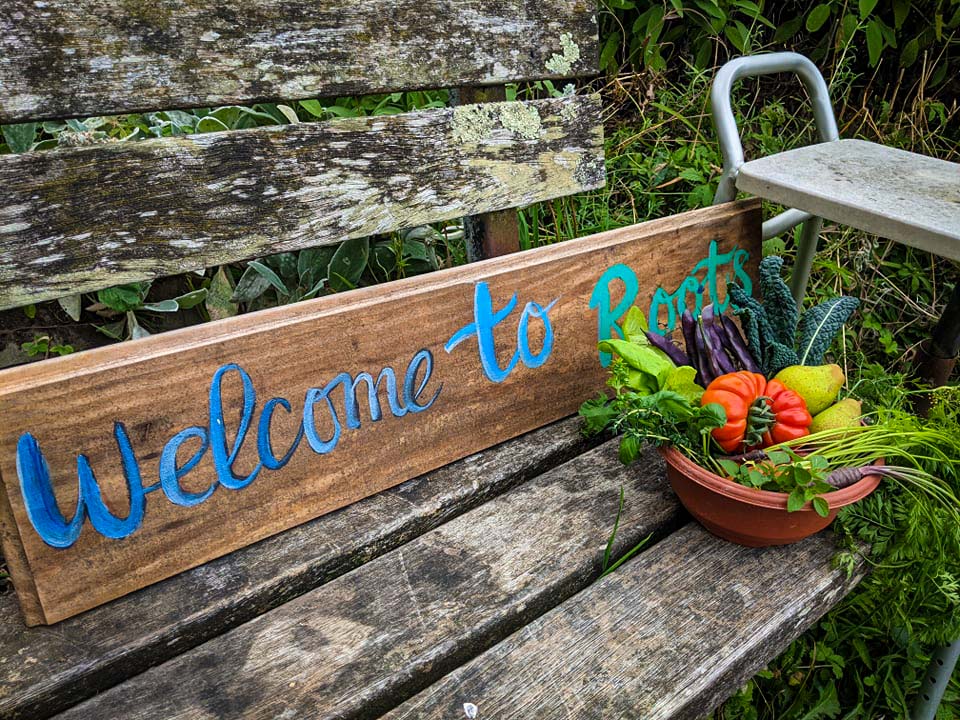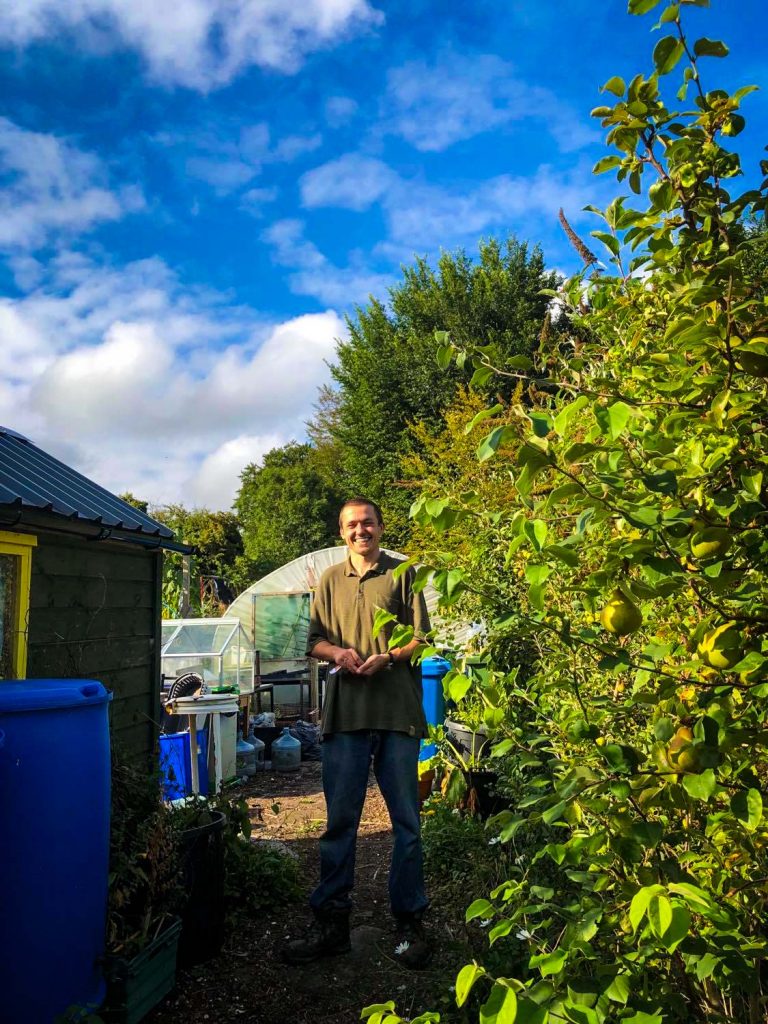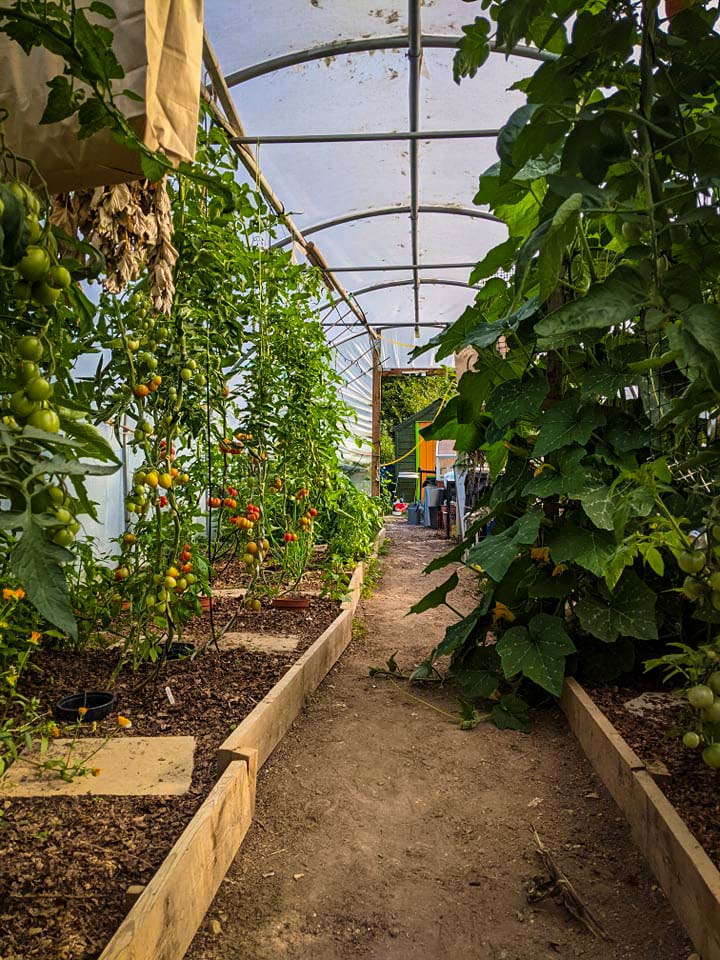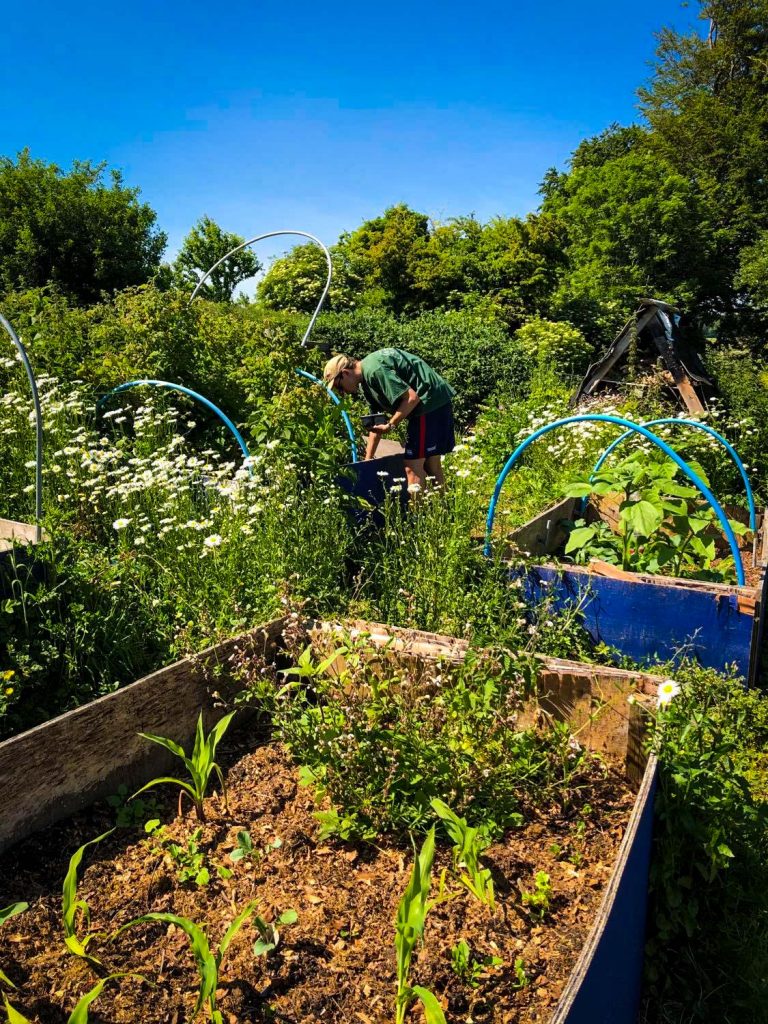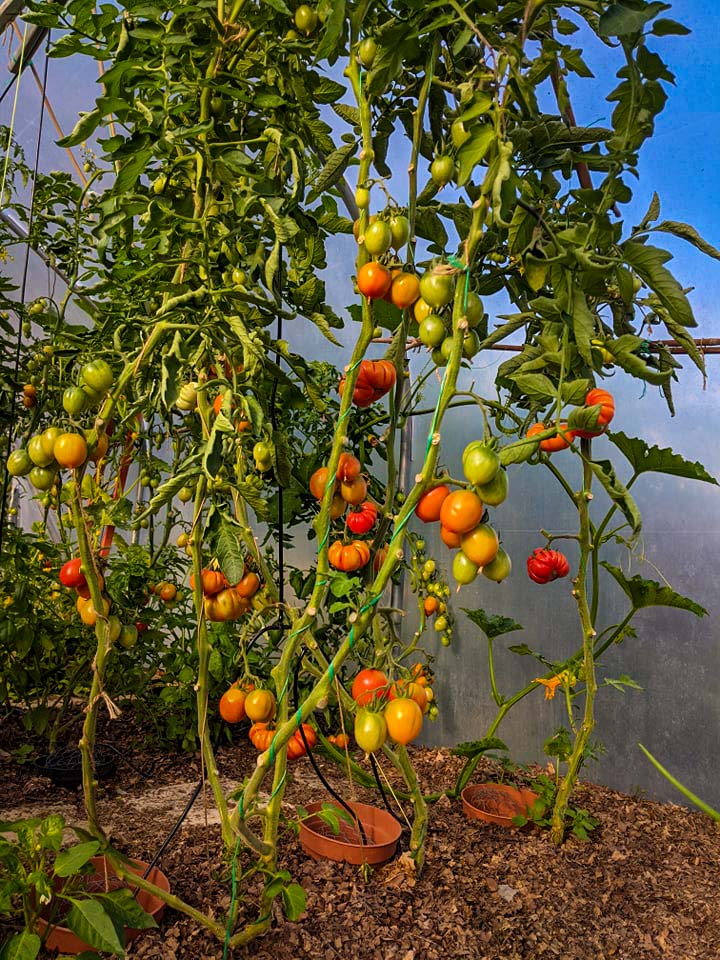This group of students has decided to take matters – or shovels, to be precise – into their own hands. Students at the University of Sussex have established their own community garden, determined to get fresh air, learn new skills, create a stronger community, and add healthy, organic produce to their nutrition. Read about the garden’s value from one of its current members.
Sussex Roots is a community of students managing a students’ community garden. It represents a safe space for campus residents to grow their own plants, fruit, vegetables, and trees. The idea for the gardens sprouted back in 2005, when Roots first saw the light of day, from the desire for outside space that students could run by themselves.
Normally, the CityChangers team talks to developers of the projects to bring you the best valuable knowledge. This time, however, we took a different approach. We spoke to Adam Skirkowski, a student of Ecology and Conservation at the University of Sussex and a passionate member of Sussex Roots, to better understand what projects like these mean to their participants, and why they are worth establishing.
Community-Building
Usually, Roots has between 10 to 40 students regularly involved in the gardens; however, the facilities have an open access, anyone can come “without commitment or obligation.”
It’s all about community empowerment. Gardening aside, Sussex Roots presents a safe, judgement-free space for all students. The emphasis is on enjoyment and socialising. “The biggest part of what we do is the community, it’s the people who put in time and effort, and the people who want to be there,” points out Adam. It’s about “being able to see actual human beings, talk to them, and actually make proper friendships.”
“It’s students working together to make the gardens as we want them to be. It’s a personalised space by our community.”
As it’s a student-led project, Roots is located on the University’s property. This doesn’t mean, though, that it’s closed off. Anyone can visit, garden, socialise, and to find it more easily, the location is provided:
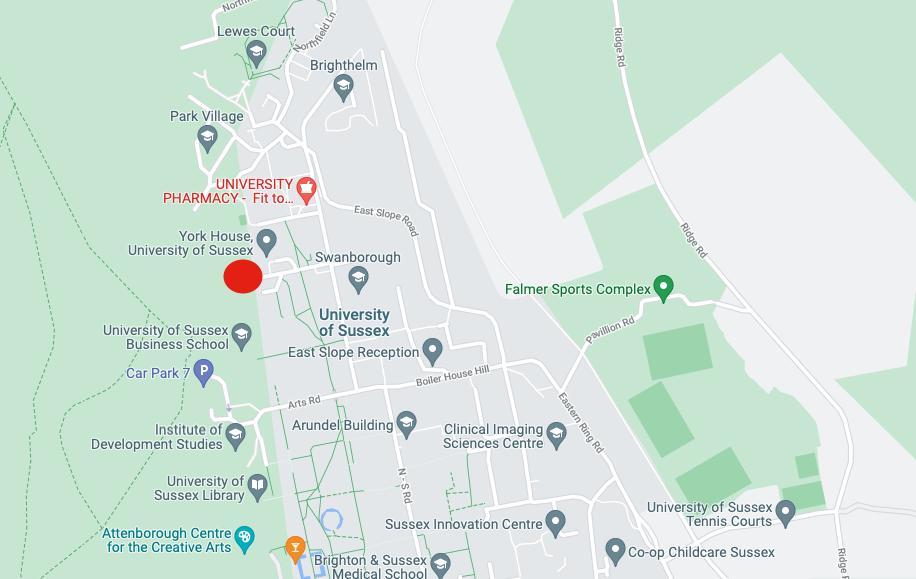
Self-Sustainability
What makes these gardens even more special is the fact that Roots are based on a farming method called permaculture. It incorporates natural systems and natural processes and is completely bio. Their allotment also includes flower beds to attract pollinators.
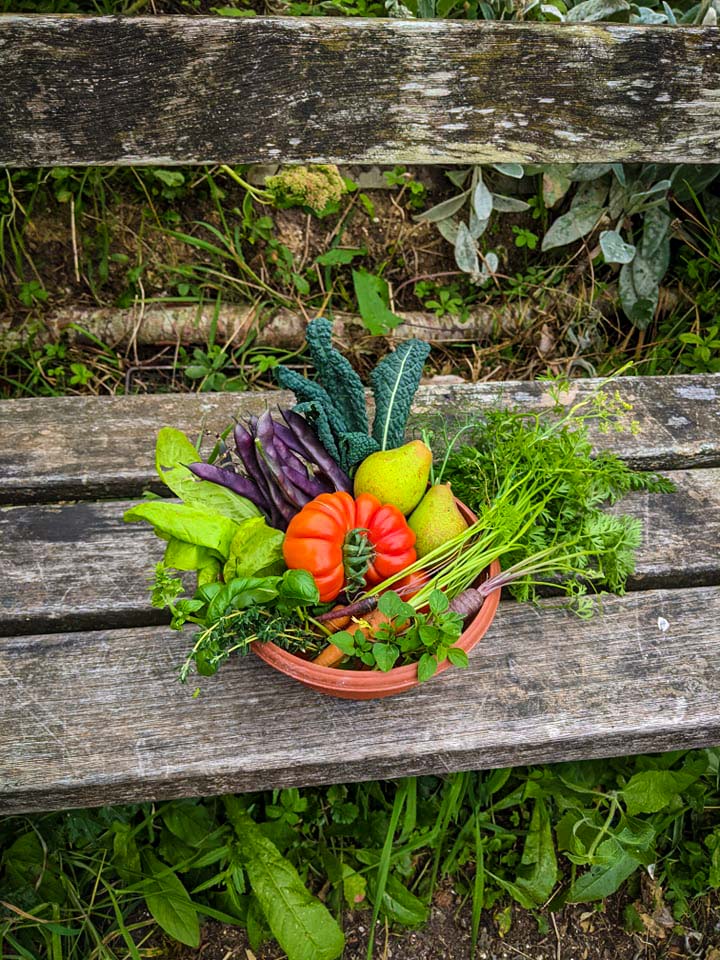
“We try and keep money out of what we do,” Adam summarises the principle of Roots. It’s about sustainability – they recycle their seeds instead of buying new ones, collect and make use of rainwater, and maintain their own compost.
“We use the natural resources that we have around us in a sustainable way.”
Learning Solidarity
And what happens to the crops? As Adam says: “It’s a respectful community,” therefore, the ones working the most, have an advantage in crop collection. But there’s always plenty to go around and instead of hoarding it all for themselves, they distribute it. It either goes to the Food Waste Café (another student-led project), or to homeless shelters. “We want to be benefiting to the people around us. We want to be a good mark on our landscape”, Adam tells us, further continuing:
“Money seeking scheme isn’t something that we want to do, we want to keep things equal, free, accessible.”
What’s in It for the Students
After being stuck in student accommodation during the pandemic, surrounded by concrete, Adam just wanted to go out, and have access to some green space. Sussex Roots felt like the perfect thing to join as it also aligns with his studies in a practical sense: learning how to actually produce food without destroying the environment. “Being able to learn that you don’t need to compete against nature is really therapeutic for the mind,” Adam stresses.
“I’m sure many students can sympathise – you pay a lot of money for a room in a block of flats, with very little access to the outside space.”
There is a wide range of benefits for anybody who gets involved in gardening. Speaking from personal experience, Adam points out a few:
Mental Recharge
Being in an outside space is therapeutic, and especially important to students as it takes them away from the burnout of university life. “Staring at a computer screen makes you anxious and stressed with your workloads. Gardens are the perfect place to recharge,” explains Adam.
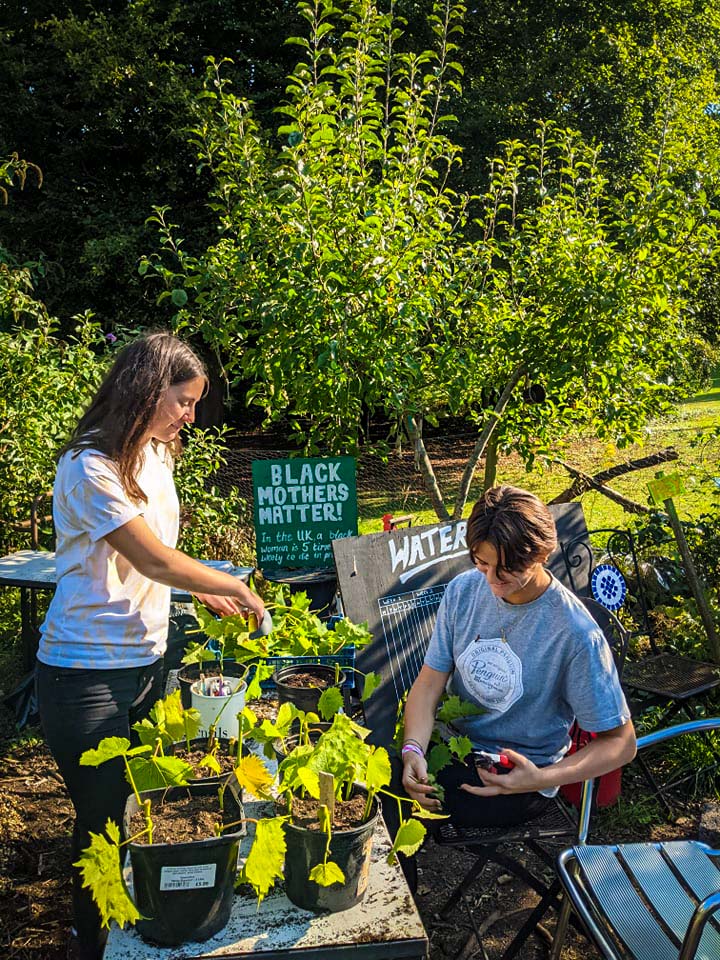
Environmentally Conscious
“It’s really important to have a sense of where your food comes from and the impacts that you do have on the environment.”
Adam’s taking a stand for his generation. To him, the current generation of students presents a very environmentally conscious group of young, active, and motivated people. They all want more to be done when it comes to taking a stand on environmental issues – Roots offers a great way of taking responsibility for that.
Reducing Food-Related Costs
The life of a frugal student… we are pretty sure we can all remember how important keeping a budget was to sustain university life. Students of Sussex are no exception. Roots, therefore, helps save a little on the weekly grocery shopping bill.
Better Nutrition
Not only is growing your own food beneficial to the student’s wallet, but it also includes more health-related benefits than store-bought produce. “It helps students diversify their diets, get better nutrition, which makes them healthier, more prepared for learning and more energetic in general. And it tastes better,” argues Adam.
Freedom of Individuality
Gardens offer a great way for socialising, meeting new people, forming new relationships, all while working together on something good. Adam says the gardens are a place without “judgement or stigmas. It’s just people getting involved and being happy in a natural space.” They have been of even greater importance since the pandemic when many were stuck inside, without any physical social contacts or access to fresh air.
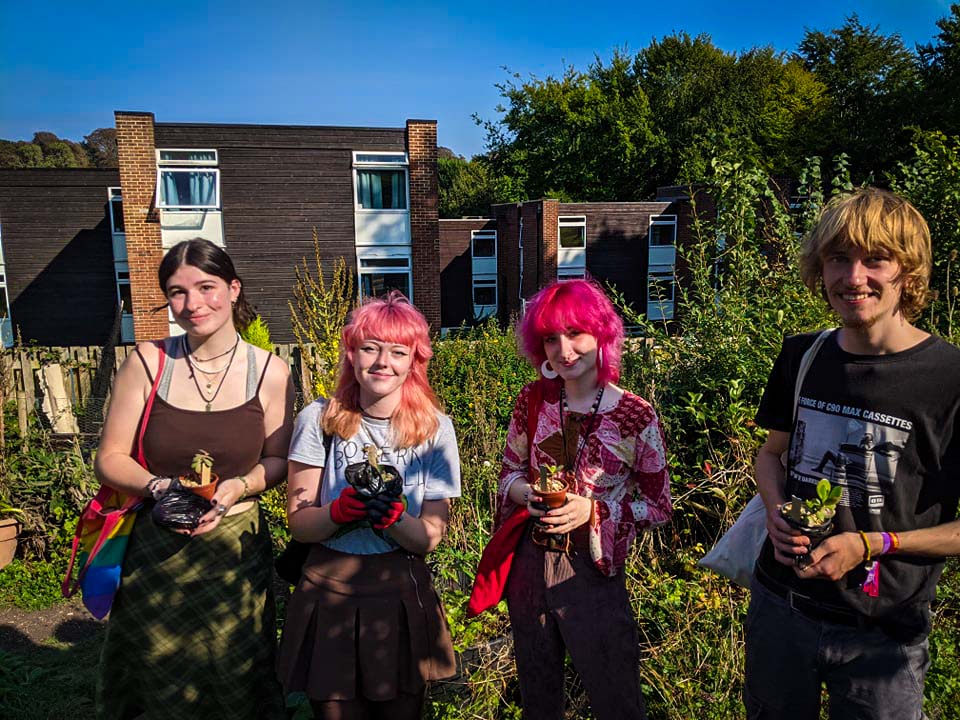
Hope
… is what the gardens present to Adam. After more than a year of pandemical exclusion and its consequences, Roots enables people to socialise again, be in the fresh air, and get down and dirty (literally). And to Adam, all these things combined mean a better future: “We all want to do something better, want to have a meaningful life after university.” Projects like these help students with figuring out what they want to do with their lives.
Gardens are not there just for working. Evenings behind a fire pit, cooking and sharing the food grown, are a common thing. And during the day, various lecturers are planned to come along this year, giving casual, free talks on plant interactions, invertebrate biodiversity, raising trees, etc. Sharing knowledge, motivation, creating meaningful bonds: that’s the whole purpose of Sussex Roots.
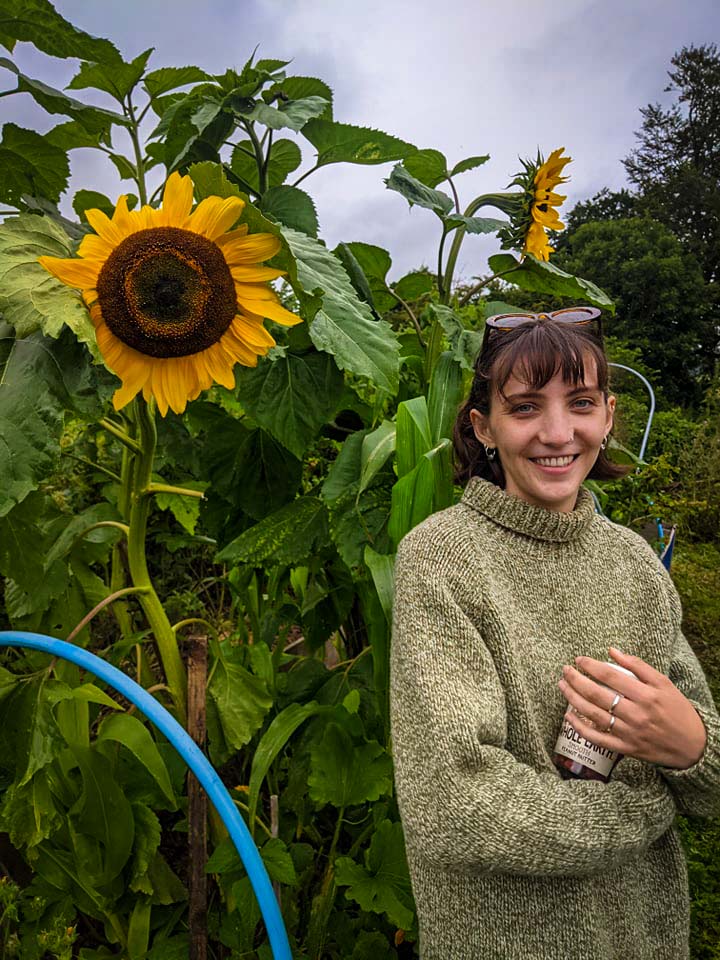
It’s the Little Things in Life
Appreciating the small joys in one of the most important, even though sometimes hard, tasks of living. Adam knows this; to him, the thing about the gardens that sticks out the most is the sunflowers. “It’s just flowers, but to see how many people enjoyed planting them, and are excited about them growing, and to see how much joy they give people who walk past and are just amazed – that’s the most memorable thing,” reflects Adam joyfully, continuing “the most important thing I’ve taken away from it is seeing how things develop and seeing what something so simple as a big flower means to people.”
Positive & World-Shaping Minds
To Adam, the future of community gardens looks promising. Looking at his fellow students, he sees a movement for more environmental spaces, more wild spaces, more gardening spaces: “I see a bigger drive to garden, to make allotments, to growing our own food and making it accessible, especially in urban areas.”
“To be able to produce food for our communities without just taking away from the natural landscape is something that needs to be done more.”
In fact, if Sussex Roots sounds like a great initiative to you, don’t be discouraged to start your own. As Adam says: “Don’t feel like you can’t do it.” Because chances are, there are people in your community more than willing to support and/or join your cause. “Don’t hold back. Don’t wait. Don’t think it’s the wrong idea. Because if it’s something that you’re passionate about, you should do it,” encourages Adam, of course, keeping in mind not to underestimate the challenge.
If you would like to find out more about how to start an urban garden, read this advice from an expert in the field.

